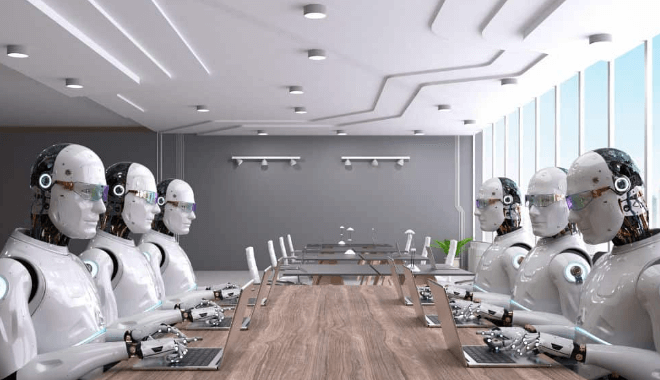AI and Automation in Career Development: Adapting to the Future of Work

In 2024, artificial intelligence (AI) and automation are transforming the career landscape across industries. Although job replacement by AI is a threat, the reality is more complex. AI and automation are not just eliminating roles; they are also creating new opportunities and reshaping how professionals think about career development. The rise of AI-driven industries is shifting the skills and competencies required for many jobs, forcing professionals to adapt to remain competitive in the workforce. As AI handles routine tasks, the demand for AI-related skills and human-centric capabilities like creativity, problem-solving, and emotional intelligence is increasing.
This article explores how AI and automation are reshaping careers, the emerging skills that are becoming critical, and how individuals can navigate this evolving landscape to advance in their careers.
AI and Automation’s Effect on Job Roles
AI and automation have already made their mark across industries, automating repetitive and routine tasks traditionally performed by humans. Industries like manufacturing, customer service, data processing, and retail are among the first to experience the effects. For instance, automated systems are being used in factories to perform physical tasks, while chatbots and virtual assistants are managing customer inquiries in industries like finance and e-commerce.
However, these changes are not limited to low-skill jobs. In sectors like healthcare and financial services, AI is increasingly being used to analyze large datasets, assist with diagnostics, and streamline decision-making processes. This means that tasks such as data entry or initial data analysis, which were once handled by professionals, are now being automated, freeing up human workers to focus on more complex and strategic responsibilities.
See also: michujobs
Job Displacement vs. Job Creation
While AI and automation do lead to the displacement of certain job roles, they also create new jobs, particularly in areas related to AI development, robotics, data science, and machine learning. Careers in AI are booming, with roles such as AI engineers, data scientists, and machine learning specialists being in high demand. According to a study by the World Economic Forum, automation could displace 85 million jobs by 2025, but it could also create 97 million new roles in industries focused on technology, data analysis, and sustainability.
This shift from labor-intensive to tech-driven jobs highlights the need for professionals to reskill and upskill to stay competitive. As routine tasks become automated, the focus is shifting toward jobs that require critical thinking, complex problem-solving, and the ability to work alongside AI systems.
Key Skills for the AI-Driven Future
To thrive in a world where AI and automation are becoming more integrated into the workplace, professionals need to focus on both technical and human skills. While technical skills related to AI, machine learning, and data analytics are critical, the ability to adapt and leverage human strengths is equally important.
1. AI Literacy and Technical Skills
Understanding how AI works and having a foundational knowledge of how to apply AI tools in specific industries are essential for many roles. Even professionals outside of the tech industry are expected to have a basic understanding of AI applications and automation processes. Skills such as data analysis, coding, and robotics are becoming more valuable across sectors like finance, healthcare, and education.
For example, data scientists and machine learning engineers are key roles in developing AI algorithms and systems that power automation across industries. Companies are increasingly looking for individuals who can build, manage, and improve AI systems to gain a competitive edge.
2. Adaptability and Lifelong Learning
In a fast-evolving career landscape, the ability to adapt to change and commit to lifelong learning is more important than ever. The rapid pace of technological advancements requires professionals to continually update their skills. Online platforms like Coursera, edX, and Udemy are making it easier for individuals to learn new skills at their own pace, helping them stay relevant in the job market.
Moreover, many companies are investing in employee reskilling programs to help workers transition into new roles as automation changes the nature of their current jobs. By being proactive and staying open to learning new technologies and methodologies, professionals can maintain their relevance and secure better career opportunities.
3. Soft Skills in the AI Age
While technical skills are vital, soft skills such as empathy, communication, and collaboration are becoming increasingly valuable in the AI-driven workplace. AI can handle data and automation, but it cannot replace human emotional intelligence, creativity, or leadership. Jobs in creative industries, management, human resources, and education are highly reliant on these uniquely human abilities and are less likely to be automated.
For instance, project managers who can lead teams, navigate complex interpersonal dynamics, and drive strategic goals are still in demand despite automation in other areas of project management. Similarly, creative roles in fields like marketing, design, and entertainment continue to thrive because they require human ingenuity and innovation that AI cannot replicate.
AI-Driven Career Paths
As AI becomes more integrated into the workplace, several new career paths are emerging, offering exciting opportunities for professionals who are willing to embrace these changes. Here are a few notable AI-driven career options:
1. AI Engineers and Developers
AI engineers are responsible for building the algorithms and software systems that enable machines to learn and operate autonomously. These professionals are at the forefront of developing AI solutions that optimize business processes, enhance customer experiences, and drive innovation across industries.
2. Data Scientists and Analysts
Data scientists work with massive datasets to uncover patterns, trends, and insights that inform business decisions. In the AI era, data scientists are critical in training machine learning models and developing predictive analytics that improve operational efficiency and drive strategic growth.
3. Ethics and Compliance Officers in AI
With the rise of AI, there is increasing concern about AI ethics and bias in automated decision-making. Careers in AI ethics are growing, with professionals working to ensure that AI systems are transparent, fair, and compliant with legal and ethical standards. These roles require a blend of technical understanding and knowledge of human rights and ethical principles.
Navigating the AI-Driven Career Shift
For individuals looking to future-proof their careers in an AI-driven world, a few key strategies can help:
- Continuous Learning: Keeping up with AI and automation trends through online courses, certifications, and workshops will help professionals stay ahead of the curve.
- Skill Diversification: Combining technical skills with human-centric soft skills, like communication and creativity, will increase employability across various industries.
- Embracing Change: Being open to evolving roles and industries, and learning to work alongside AI, will be crucial as automation reshapes job functions.
Conclusion
AI and automation are undoubtedly transforming the career landscape, eliminating certain roles while creating new opportunities in high-tech fields. To thrive in this new reality, professionals must develop the right balance of technical proficiency and soft skills, and maintain a commitment to lifelong learning. As AI takes on routine tasks, human workers will increasingly focus on creativity, leadership, and emotional intelligence—skills that machines cannot replicate. By embracing this shift, individuals can unlock new career paths and take advantage of the opportunities presented by AI and automation.




